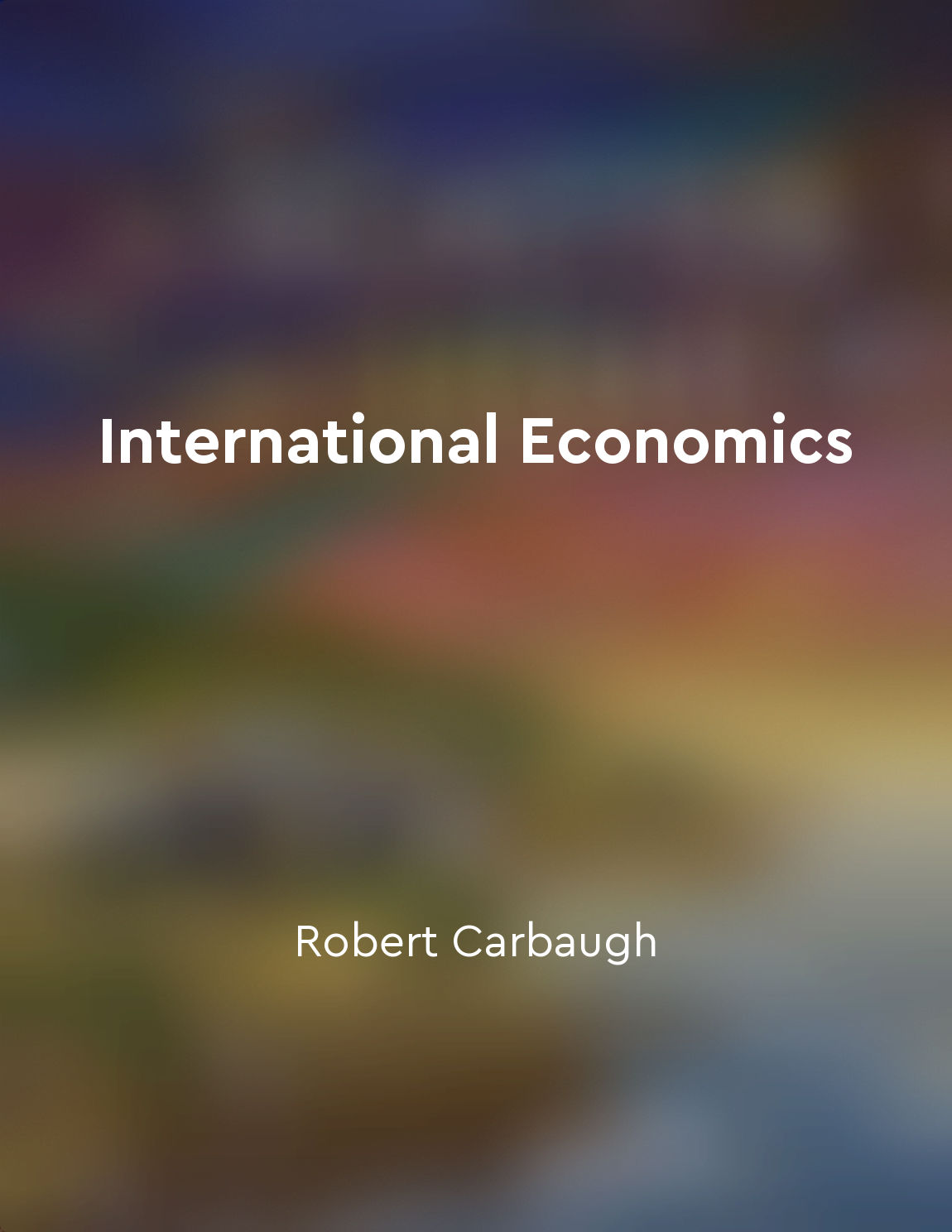Audio available in app
Tariffs are used to protect domestic industries from "summary" of International Economics by Robert Carbaugh
Tariffs serve as a means of shielding domestic industries from foreign competition. By imposing a tax on imported goods, governments can make these products more expensive for consumers, thereby giving a competitive advantage to domestically produced goods. This protectionist measure aims to bolster the growth and stability of local industries, which may struggle to compete with foreign companies that benefit from lower production costs or government subsidies. The rationale behind using tariffs to safeguard domestic industries lies in the desire to prevent job losses and economic decline in key sectors of the economy. By reducing the influx of cheaper imports, tariffs can help maintain a level playing field for local businesses, allowing them to thrive and contribute to the overall economic prosperity of the country. This protectionist approach is often favored by policymakers who prioritize the preservation of domestic jobs and industries over the pursuit of free trade. However, the use of tariffs as a tool for protecting domestic industries is not without its drawbacks. Critics argue that tariffs can lead to higher prices for consumers, reduce overall economic efficiency, and provoke retaliation from trading partners. Moreover, reliance on protectionist measures may hinder innovation and technological advancement in domestic industries, as they are shielded from the pressures of global competition.- Tariffs are a commonly employed strategy to shield domestic industries from foreign competition by raising the cost of imported goods. While this approach may offer short-term benefits to local businesses, it also comes with potential costs and consequences that must be carefully weighed by policymakers. The decision to use tariffs as a means of protection should be made with a thorough understanding of its implications for the economy and the broader trade landscape.
Similar Posts
Sticky prices cause shortterm problems
Prices that do not adjust quickly to changes in supply and demand are called sticky prices. When prices are sticky, they can ca...
Economic crises are a result of policy failures
Economic crises do not occur out of the blue. They are not acts of God. They are man-made disasters, resulting from policy fail...
Compliance with trade regulations is imperative for businesses
Businesses operating in the global marketplace must adhere to a complex web of trade regulations and laws. Failure to comply wi...

Global economic events have ripple effects on businesses
The global economy is an intricate web of interconnected businesses, industries, and countries. When a major economic event occ...
International competition impacts corporate strategies
International competition plays a crucial role in shaping the strategies of corporations in the modern industrial state. The dy...
The Fair Tax is revenueneutral
The Fair Tax is revenue-neutral, which means that it raises the same amount of revenue as the current tax system. This is an im...

Individual choice is essential
The freedom to choose is a fundamental aspect of human existence. It is through the exercise of individual choice that we expre...

Developing countries face challenges in global trade
Developing countries are confronted with numerous obstacles when it comes to participating in global trade. One of the primary ...

Legal sanctions deter misconduct
The idea that legal sanctions can deter misconduct is a fundamental concept in the field of law and economics. When individuals...

